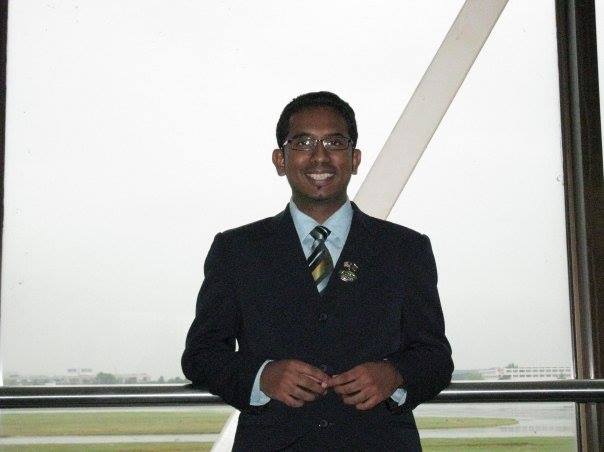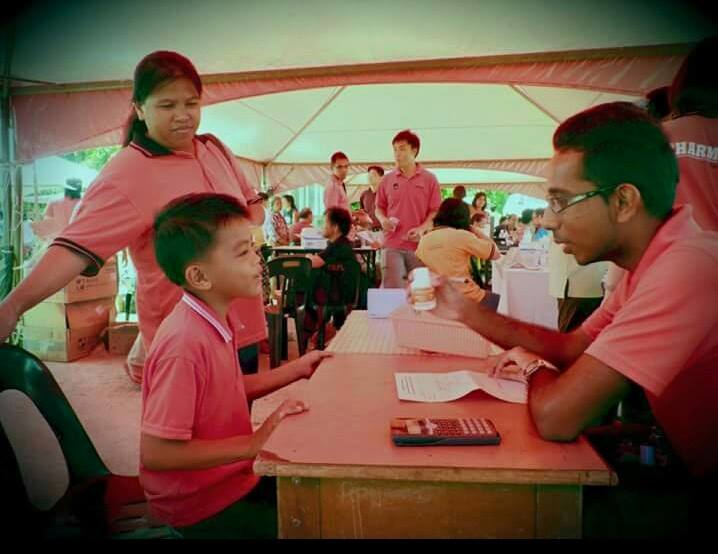JPA Has Funded Thousands Of Students To Study. Where Are They Now And What Are They Doing?
Some were able to find a job or a placement almost immediately. The rest, however, were not as fortunate.
The Public Service Department (JPA) scholarships are one of the most sought-after scholarships by Malaysians as recipients would be fully funded by the government to pursue their tertiary education, whether locally or overseas
On the other hand, the nation was taken aback last week by the surprise announcement that JPA has suspended scholarships due to the country's shrinking revenue. Thus, debates began to unfold as to whether the government should actually completely stop giving scholarships altogether.
Over the years, thousands of Malaysians have benefited from the JPA scholarships, but some have raised questions on whether these recipients have done something for the country in return.
To find out, SAYS talked to three Malaysians who have received the scholarship in the past:
We've heard many stories about JPA scholars staying abroad after completing their education. However, Stephanie* decided to not be one of them and came back home after finishing her degree.
Stephanie was assigned to Cambridge A-levels for pre-university in KDU College, then she went to UK to obtain a Communications and Media Studies degree.
When she returned, Stephanie applied for five government jobs in the civil service portal but actually didn't hear anything from them for a year. Thankfully, she got a job with her own effort within just a month upon her return, as she enrolled for TalentCorp's Scholarship Talent Attraction & Retention (STAR) programme.
She is currently doing Corporate Communications for a multinational company based in Kuala Lumpur.
Coming back wasn't easy at all as there were great career opportunities and a potential for family life abroad, but she picked Malaysia over everything and came back home to her family
"One of the main reasons I came back is because my parents are well...growing old. Dad has hit the big 60 and my brother is seven years younger than me. I'm the oldest child in the family, so I guess it's the natural sense of responsibility to come home and care for them," Stephanie told SAYS.
"I'd hate to be abroad, being a 13-hour flight away if anything were to happen to them. I wouldn't be able to live with it."
"I've never considered not coming back because I think it's too selfish a decision."
"Not coming back means bearing half a million worth of debt. I wasn't prepared to push that burden to my parents, neither was I going to start my life with such a huge debt.
I know many who didn't come back, went in hiding and I'm guessing have no intention of paying back. I've never considered that because I think it's too selfish a move. They rob others off future scholarships," Stephanie said.
Another graduate who returned to Malaysia after he finished studying, is Sivaraj Raman. However, unlike Stephanie, he easily got a spot as a Provisionally-Registered Pharmacist (PRP) in Hospital Keningau, Sabah after he finished his studies in Glasgow, UK.
"Usually for medical fields, our placings are quite sure. This is compared to other programmes such as engineering, which might not have that many slots as compared to medical fields," the 29-year-old said.
"We still have not achieved the saturation point (in medical field), so there are still many slots left. However, that is nearing the end as the market is starting to be overloaded," said Sivaraj, who was funded by JPA to study pharmacy in 2005.
Now in his sixth year of working and at his final government bond period, Sivaraj is still serving at Hospital Keningau as a Drug Information Service Pharmacist
"To be bluntly honest, that gratitude was however not to JPA, but more to the people. I still believe my teachers and the normal tax-paying public had paid for my education, and there is a need to serve them."
"Those that stayed back (abroad) are not ungrateful. It is either for self-survivability or opportunities. And it's not wrong. I have heard so many brilliant minds being trapped and bored with stagnant government service."
"I've heard a story about a guy who was sent abroad to study in a niche field but ended up being sent to a rural klinik kesihatan where he can't practice what he had studied. So if there are equivalent opportunities and job satisfactions, more people would come back."
"Ideas and minds are not restricted by geographical boundaries. Compared to serving an 8-5 job, a successful Malaysian living abroad could give us a greater impact. Then maybe one day, they will be back to continue serving the people."
"Those that are staying abroad is in a way keeping our names high - think about all the talented people that are there and they are able to contribute via networking."
"Lets say we send 30 students abroad to study medicine, and eventually most returned and 1 became a pioneer or revolutionise the industry, is it a worthwhile investment?"
"The question is that as scholars, we need to ask if we have anything to give back and how we are going to do that. Just being back is not enough. I am back, so I choose to actively seek to serve my community," Sivaraj added.
Sivaraj is one of the fortunate ones who didn't have to wait for long before he received an offer for a placement.
On the other hand, Katy is still waiting to start her housemanship ever since she returned to Malaysia after her graduation, in July 2015.
Katy was sponsored by JPA to study medicine in 2008. She spent one year taking the Cambridge A-level course and the following six years in Europe. Having gone 6 months without hearing any news from Suruhanjaya Perkhidmatan Awam (SPA) about her placement, Katy is now working as a substitute teacher.
When asked if she could be hearing any good news soon, Katy said, "No valid confirmation to be honest. We thought the waiting period is six months due to the surge of medical graduates both local and overseas, so the waiting period now is prolonged. Some of my batchmates were lucky enough to enter the February intake whereas the remaining one are just left with uncertainty and empty promises like 'Maybe March or April intake' and possibly longer."
Katy stressed that it was usually the long waiting period for a job that pushed a lot of scholars to just work overseas and pay off their debts as opposed to coming back and serving their bond
Katy added that there are a lot more job opportunities with better working environment overseas.
She also said that the system for placement hasn't been very effective as the offer letter for housemanship placements would usually arrive late, within a week's notice or less.
"Although the procedure is that we will get a notification by receiving an offer letter, we have to call in personally from time to time and hear from others to know if we are included (for a placement)," Katy said.
It cannot be denied that there are those who didn't come back to fulfill their bond with the government, however, it's safe to say that majority of JPA scholars did return to Malaysia in hopes of contributing in one way or another
Unfortunately, some of these graduates are facing difficulties finding a job or securing a placement for their respective fields in Malaysia.
While the government has been establishing initiatives such as TalentCorp to enhance graduate employability and engage Malaysians abroad in building effective partnerships at home, we still find our JPA-sponsored graduates, who are supposedly the brightest people in the country, are still struggling with unemployment.
This calls for the government to seriously look and study policies as well as implement effective initiatives that will create job opportunities and job satisfaction.







